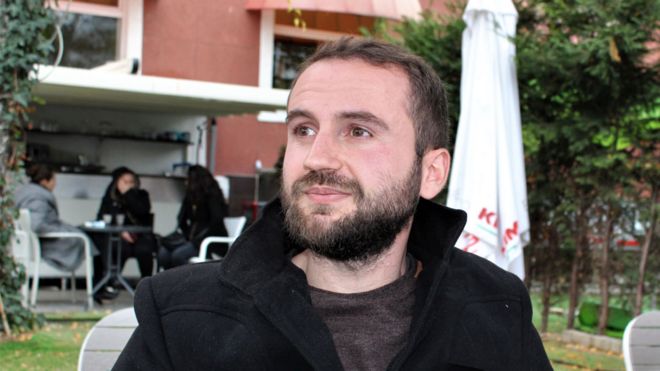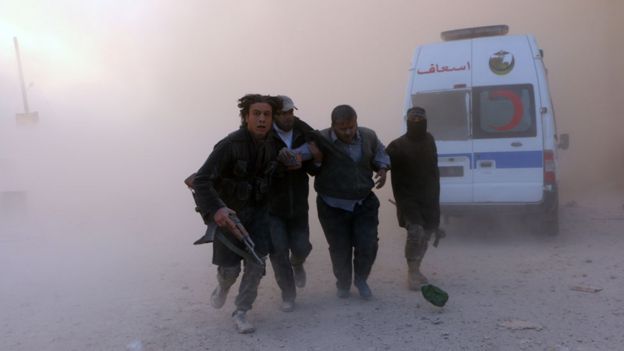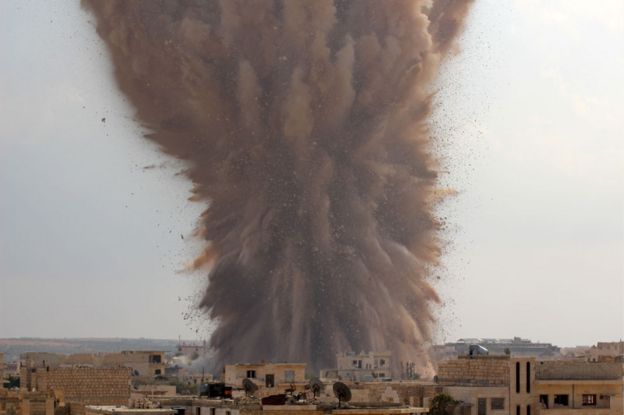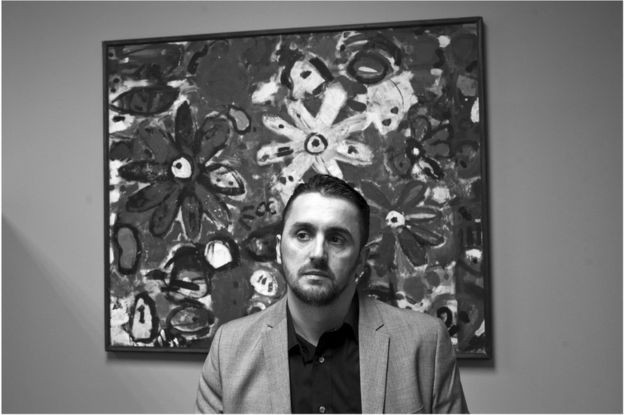"I Joined Jihadis Fighting a Holy War by Holy Accident!"

More than 300 people from Kosovo went to join Islamists fighting "holy war" in Syria and Iraq - per capita the highest number in Europe. But not all of them match the popular image of a jihadi, as Helen Nianias discovered when she met a hipsterish young man for coffee in the Kosovan capital, Pristina.
A man with a short beard, a dark pea coat and a bemused expression weaves towards me between the tables of this smart cafe. Sitting down, he looks slightly embarrassed as a tall glass of coffee topped with a huge quiff of whipped cream is put in front of him.
This is Albert Berisha. He's 31 years old and five years ago he went to Syria to fight.
"I know it's hard to believe, but it happened," Albert says about his nine days with different extremist groups. Articulate and focused, he says his primary reason for going to Syria was to oppose the Syrian president, Bashar al-Assad.
 |
| GETTY IMAGES |
"It would be easy for me to lie like many others have done - saying they just wanted to offer humanitarian aid," he says. "I really thought I would complete my training and be included in the battlefield right away. What I never intended to do was become a member of a terrorist group."
Having grown up in Kosovo, which was at war with Serbia for two years during Albert's childhood, taking up arms for a cause did not seem such a strange idea. The way he tells the story he was not radical, but naïve - before he got there, Albert's knowledge of Syria was mostly gleaned from online videos.
"I had imagined this opposition to Assad didn't have people with criminal backgrounds in the ranks," he says. He thought it would, in his words, "only have people of goodwill who want to help the population".
What he found instead was brutal and petty squabbling between different Islamist factions, more harmful than helpful to Syrian civilians. After explaining to his unit commander that he had contravened a crucial rule - he hadn't asked his mother for permission - Albert was discharged from Ahrar al-Sham, and went home. He was away from Kosovo for barely two weeks. His mother didn't even know he had been to Syria.
What he found instead was brutal and petty squabbling between different Islamist factions, more harmful than helpful to Syrian civilians. After explaining to his unit commander that he had contravened a crucial rule - he hadn't asked his mother for permission - Albert was discharged from Ahrar al-Sham, and went home. He was away from Kosovo for barely two weeks. His mother didn't even know he had been to Syria.
Well, not until Albert was arrested early one morning at his family home in 2014. He has since been convicted of terrorism charges and sentenced to three-and-a-half years in prison, which he is now appealing against. If the appeal fails he will go straight to jail.
 |
| GETTY IMAGES |
Albert and his friend Arber have set up an organisation called the Institute for Security, Integration and Deradicalisation. They hope to dissuade people from going to fight, and try to counter the jihadist narrative on social media. They also offer help to returnees to stay on the right path, but admit they aren't sure how many of the fighters who come home will want to give up their radical ways.
As for Albert, he thinks he will be 34 by the time he gets out of prison.
"When I was young, everyone thought I would go far in politics - and my first media appearance was as a suspected terrorist," he says ruefully.
Albert was right, his story is hard to believe. Who knows what happened in Syria in 2013, but today it's hard to imagine him holding a gun, let alone fighting for an al-Qaeda affiliate, or for Islamic State.

Two weeks after the end of hostilities in Kosovo, three young Albanian-Americans who had joined the Kosovo Liberation Army (KLA) were arrested by Yugoslav police, tortured and killed. Eighteen years later, the conflict has been largely forgotten, but the men's youngest brother continues a lonely fight for justice.
BBC
BBC

Comments